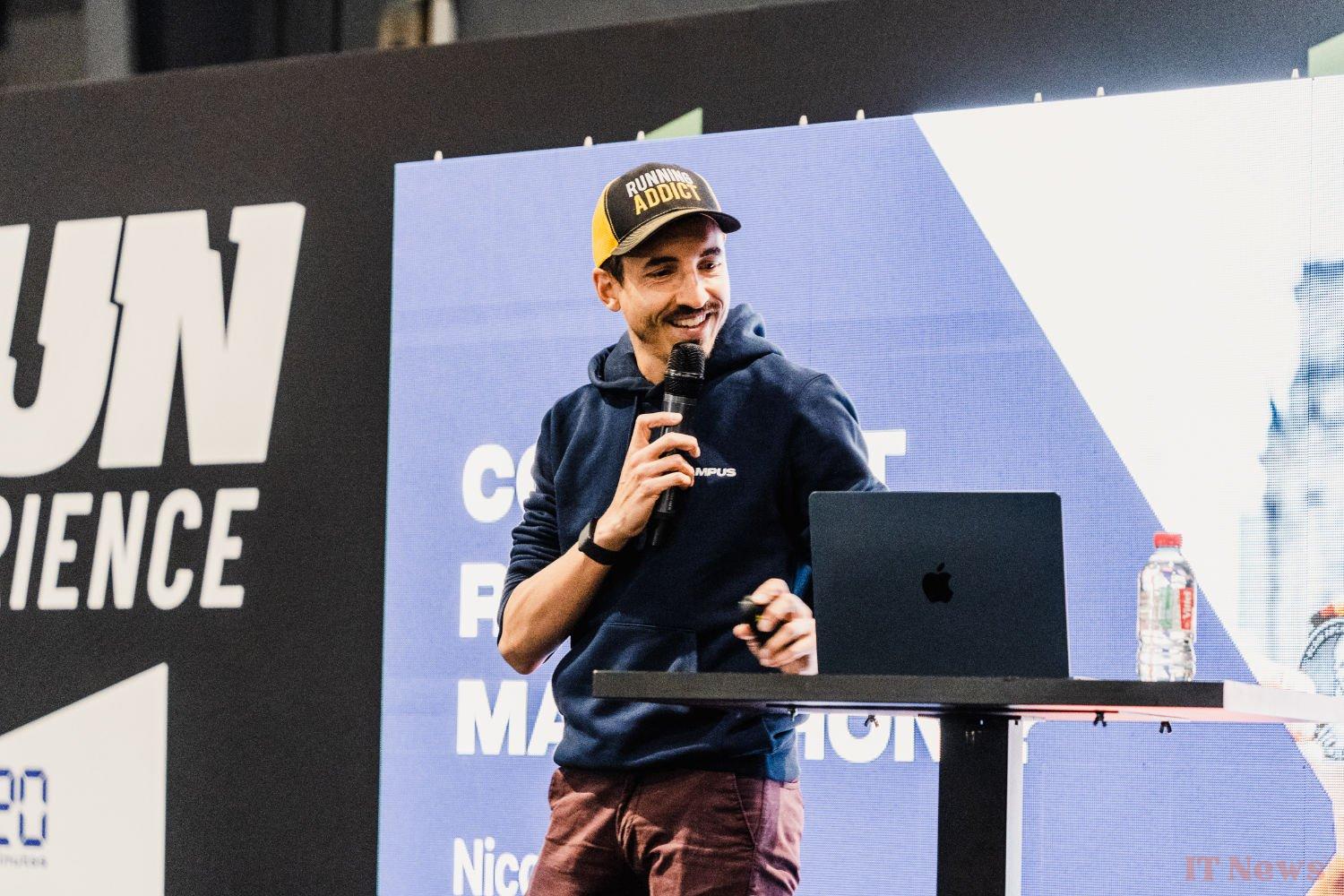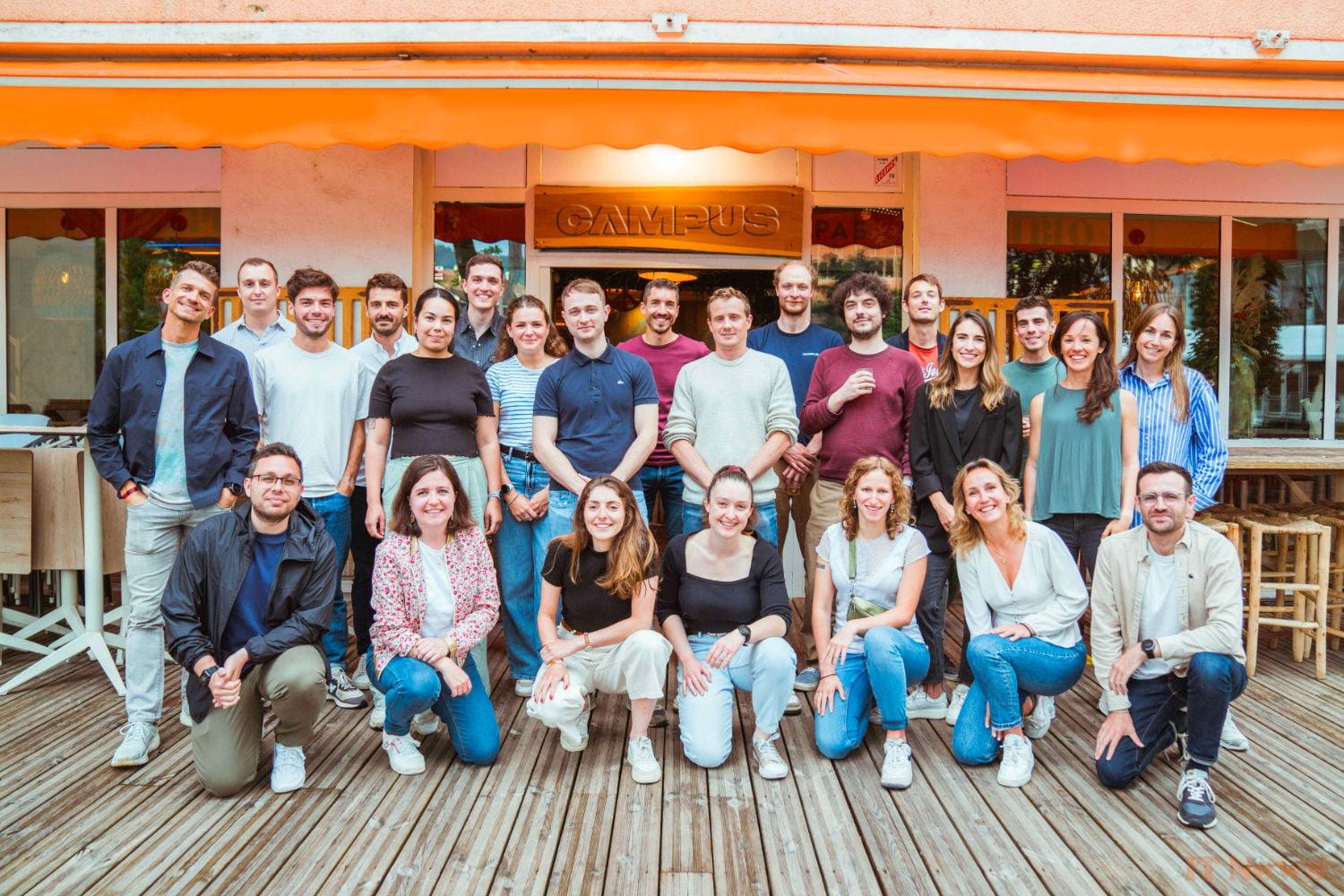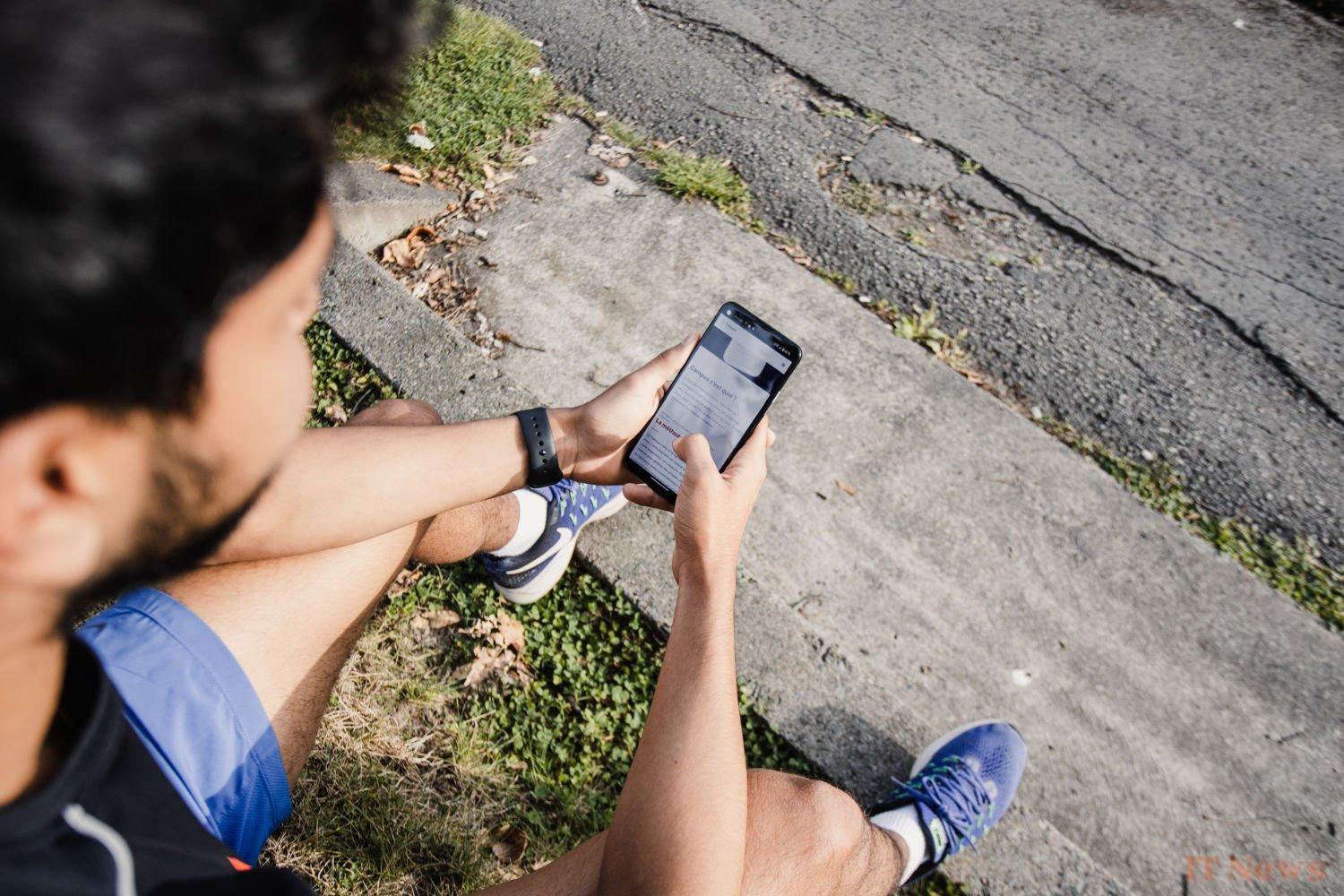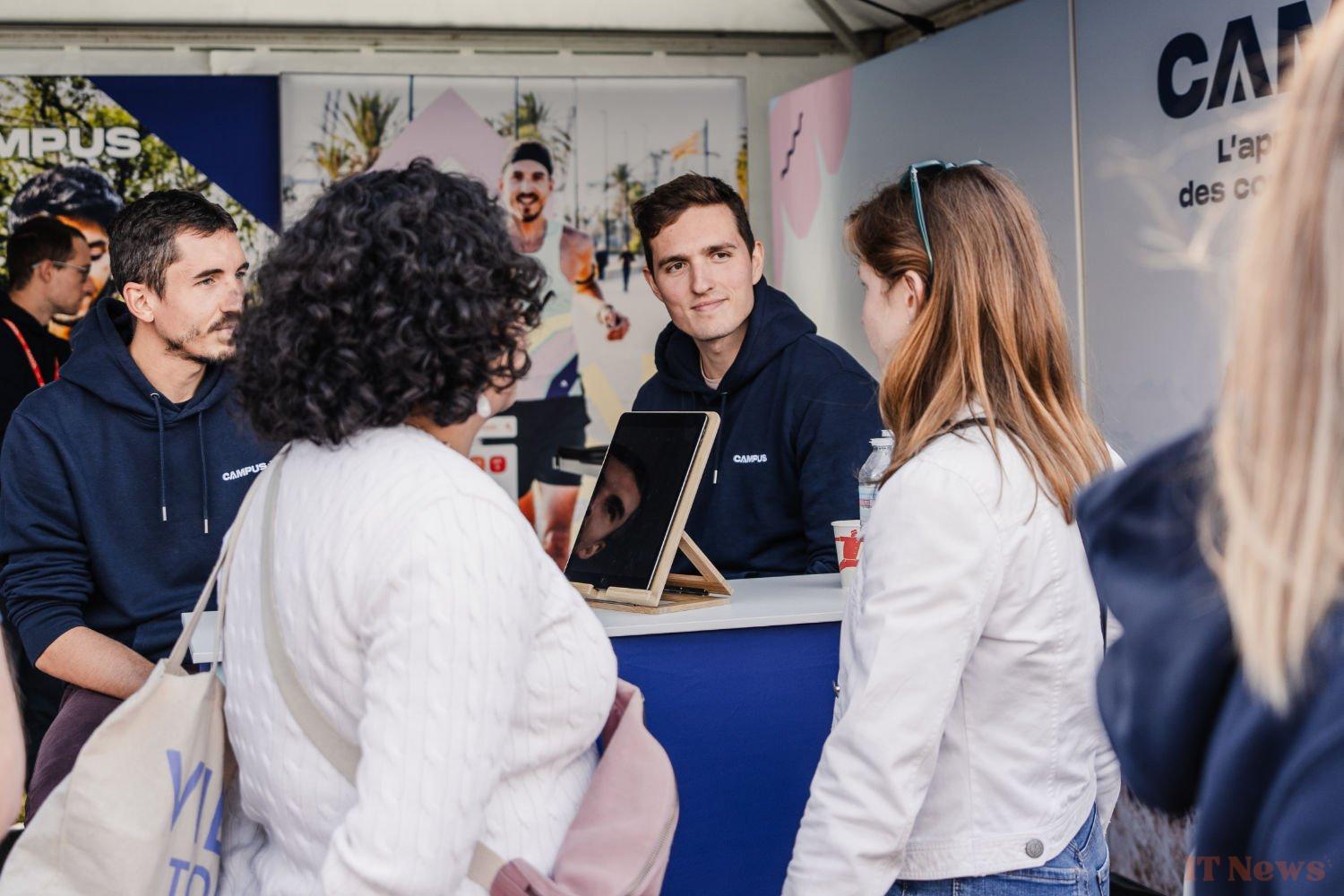The Paris Marathon is taking place this weekend, and for the occasion, we had the chance to chat with Nicolas Spiess, co-founder of the online training platform Campus COACH. This service, used by thousands of people in France, Belgium, Switzerland, and even Canada, has grown in popularity in recent years, driven by a growing craze for running.
But before materializing under the name Campus COACH, Nicolas Spiess's activities were already closely or loosely linked to this discipline. For nearly 15 years, he has been contributing to his blog, Running Addict. It was this activity, initially voluntary, that inspired him to create Campus COACH. He is then helped by his partner, Elodie, an associate Tristan (known on YouTube for the channel ironuman) and Jonathan.
JDG: If you had to summarize the Campus experience for a neophyte?
N.Spiess: Campus allows athletes to answer their questions, even before they ask them. By doing this, we remove a lot of stress and they take more pleasure in their practices. By training this way, they have a much better chance of achieving their goals, whatever they may be.
How did you get the idea to create Campus Coach?
With my blog, I started answering questions from Internet users. I created very general training plans in PDF, and I launched a newsletter. I quickly reached 5,000 subscribers (free editor's note), I understood that there was a demand, we had to do something with it. That's when I imagined the foundations of Campus.
What does the company look like today?
We have around fifty employees. The goal is to offer a personalized training plan for all types of runners. Experienced athletes, who want to perform, should find what they're looking for, just like beginners. Today we have more than 1,500 reference plans to personalize the experience.
Does the Campus experience go beyond a simple training plan?
We try to push the community aspect to the maximum. We are an application, but one that aims to be as human as possible. We offer real support, with advice like you would receive in a traditional athletics club.
We also have around thirty running groups, people who train with Campus and meet up to run together. There are some all over France, Switzerland, Belgium, and even Montreal.
Do you even offer webinars?
Absolutely. We believe that Campus users need to understand what goes on behind the scenes. If their training is done this way, it's not for nothing. Behind it, there are scientific studies, knowledge, and methods that have been empirically proven.
We're not pulling a training plan out of our magic hat; with these webinars, we're trying to convey a few concepts. The idea is to put meaning behind each workout; it's always easier to do things when you know why.
Running is a very trendy sport, especially on social media. Are you aware of this at Campus?
Personally, I've been running for 15 years, and I've actually seen an increase in the number of people taking part. Many people talk about a "Covid effect," but for me it's even earlier. We could see the beginnings of this explosion as early as 2018-19. Covid played an accelerating role. It brought people to running, that's undeniable, but they would have ended up falling into it one day or another.
Aren't you afraid of losing users in the coming years, when running goes "out of fashion"?
I don't think so, because there isn't really a running "bubble." I can't imagine people stopping overnight. On the other hand, the search for performance risks taking a back seat. People won't run for the same reasons anymore, but they'll still be physically active.
It doesn't bother us at all. We don't pretend to train the next generation of Olympic athletes. If we can get someone out of a sedentary lifestyle by getting them to enjoy sports, we've already won.
You have more and more competitors, including large groups, how do you manage to position yourself?
I wouldn't call them competitors. Honestly, these applications are even beneficial for us. They serve as a "first step." People will want to start running, they will install one of these free apps, and if they like the sport, they will want more. That's where we come in.
By offering a personalized, community-based experience, we really make a difference. We really have two very different objectives. These apps will initially operate as a one-shot, while we have a much longer-term vision. We want to keep our subscribers for several years, by adding a human touch and with different plans from one preparation to the next.
Exactly, how does this personalization materialize?
There are two main points that we look at to work on. The first is the factual data. Heart rate during training, but also whether the person succeeds in their training or if they "fail" (running vocabulary to talk about a failed training, editor's note). Finally, we check if they achieve their goal, and we compare the profiles. Why does one athlete manage to beat their record, and not another?
Generally, these answers are found in the second major data set we have, user feedback. After each training session, they give their feedback. They are transparent and that helps us a lot. We understand that a training session was missed, not because it wasn't adapted, but because of other constraints, generally external, professional, personal, or whatever.
This allows us to offer alternatives and adapt. We've been here for 5 years, but we still have a lot to learn. We remain very humble in our way of studying running; no two profiles are the same.
How do you see the future for Campus? There's demand for other sports, is that a plan?
I know users are waiting for an expansion into cycling, or even triathlon—Tristan Pawlak, co-founder of Campus, is a professional coach and experienced triathlete—but that's not planned for the moment. Since the app launched, I've been telling my teams that we shouldn't diversify.
If we want to become the best, we can't look elsewhere. Today, we rely heavily on empiricism, scientific studies, and the advice of our professional coaches. But we still have a lot to learn, particularly about individualization mechanisms. We have a research and development team that's doing fantastic work on this. Thanks to our experience and our database, we can develop highly efficient algorithms to offer ultra-advanced personalization.
This year, dozens of runners will be taking part in the Paris Marathon, supported for weeks by a training plan tailored to them by Campus. If you want to try it yourself, install the app here.






0 Comments